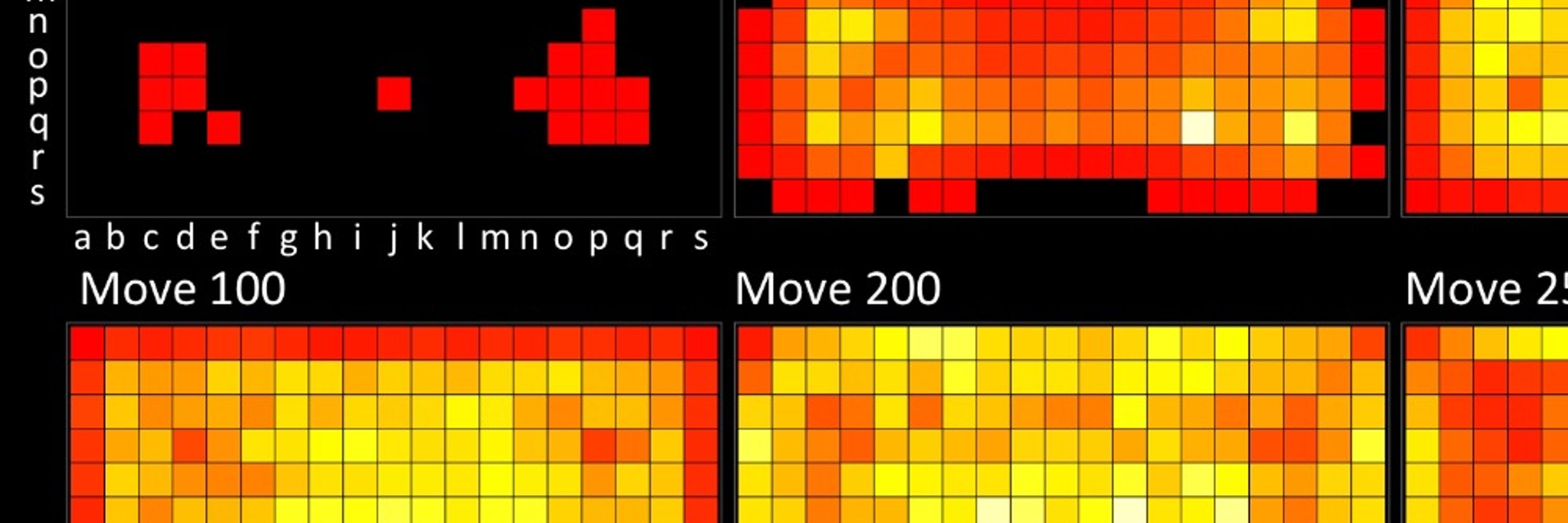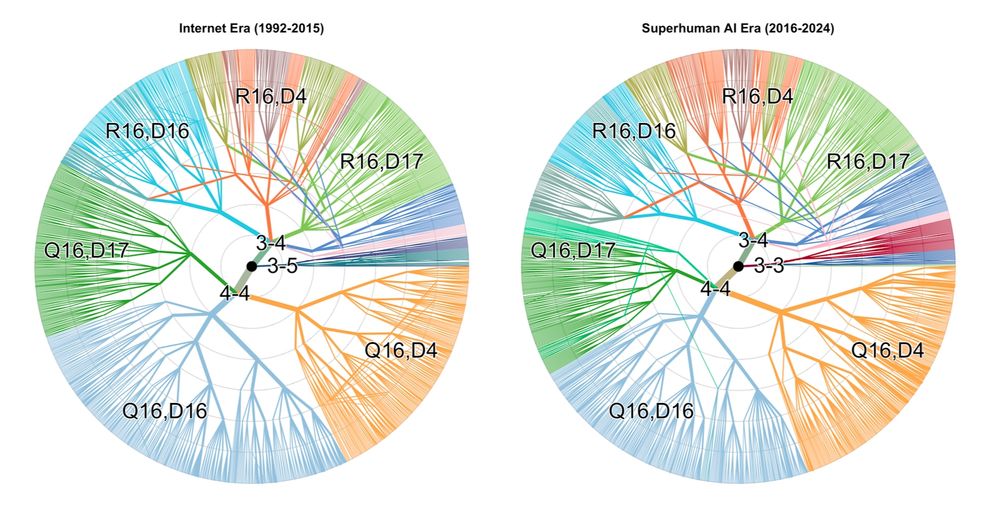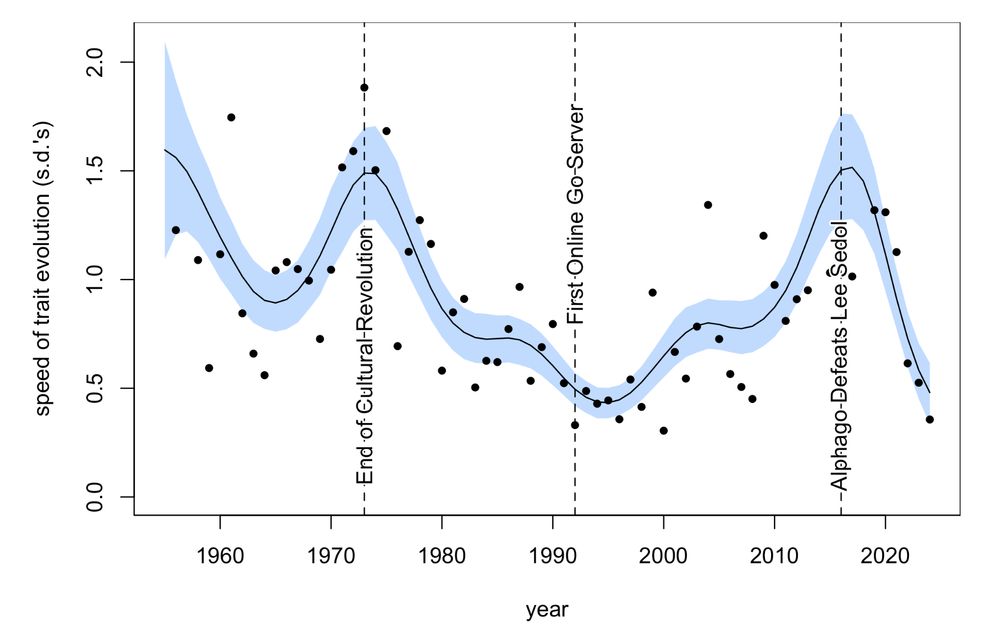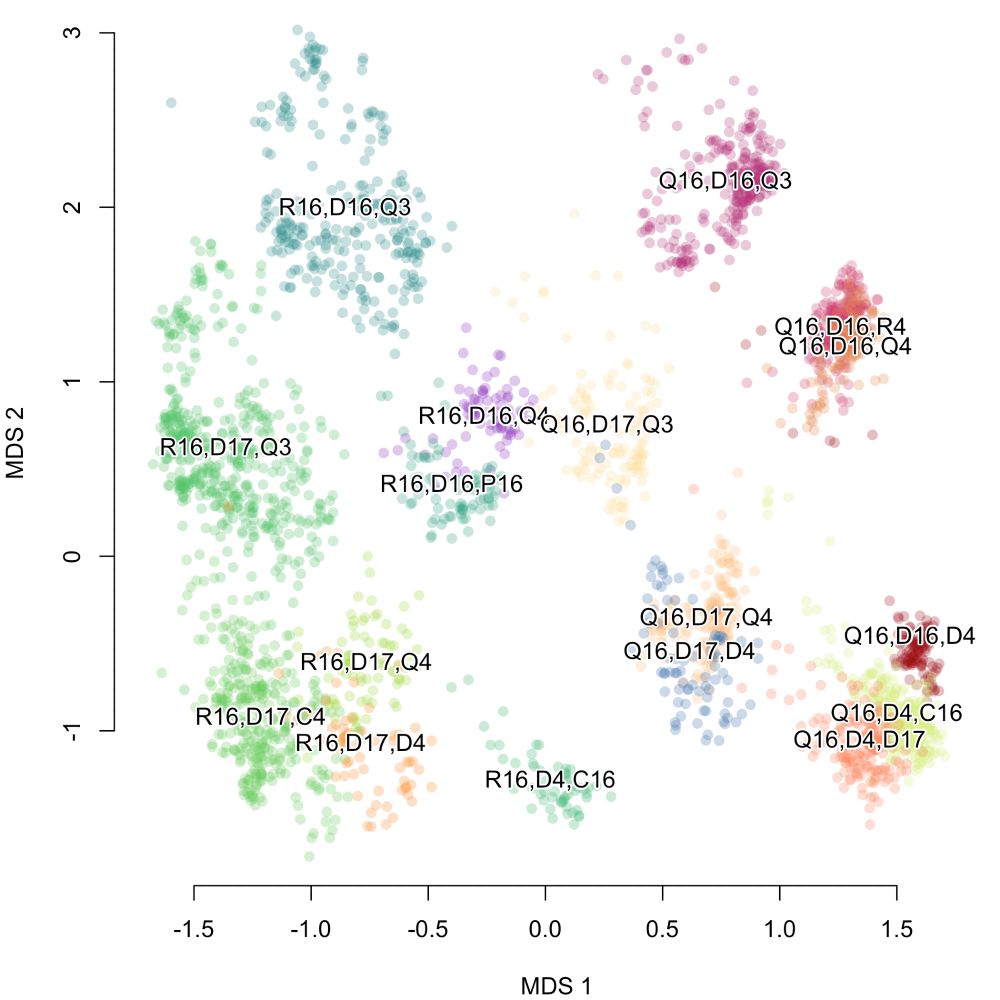








Incidentally, this paper largely wouldn't exist without your Current Biology paper on sequence alignment algorithms, which is a huge advance for cultural evolution. Getting to this MDS plot suddenly made a lot of stuff make sense in Go.

Incidentally, this paper largely wouldn't exist without your Current Biology paper on sequence alignment algorithms, which is a huge advance for cultural evolution. Getting to this MDS plot suddenly made a lot of stuff make sense in Go.


